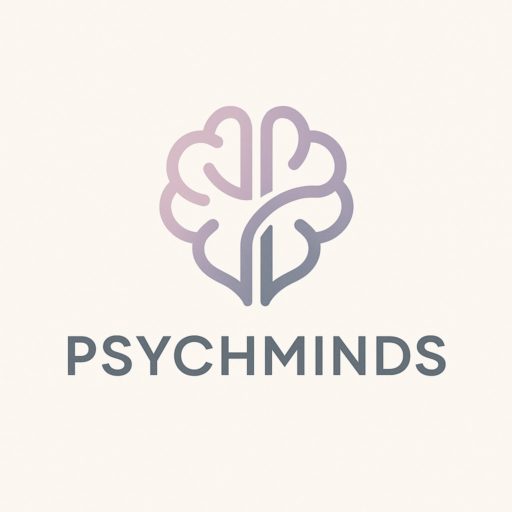There is a unique kind of heartache that comes from watching your child struggle with something you cannot fix. For many parents, Obsessive-Compulsive Disorder (OCD) brings that feeling into sharp focus – the confusion, the helplessness, the desperate wish to take their pain away.
OCD is often misunderstood. It’s not just about tidiness or handwashing. It’s not a quirk or a preference. It’s a mental health condition that can be incredibly distressing, both for the individual and those who love them.
OCD involves a cycle of intrusive thoughts (obsessions) and repetitive behaviours (compulsions) carried out to reduce the anxiety those thoughts create. These obsessions can centre around contamination, harm, illness, symmetry – and they are unwanted, frightening, and persistent. The compulsions, such as excessive cleaning, checking, or avoiding certain people or places, are attempts to feel safe. But relief is short-lived, and the cycle repeats. It’s not about choice – it’s about fear, and it can take over everything.
It is important to also address how misunderstood OCD can be. In everyday conversations, we often hear people say “I’m a bit OCD” when they like a clean house and or prefer things organised. But OCD is not a personality trait or a love of neatness – it’s a serious anxiety disorder. It’s driven by fear, not preference. The compulsions are not satisfying or enjoyable – they’re exhausting. When we casually misuse the term, we unintentionally minimise the distress that real OCD causes. That can make it even harder for children and families to feel seen and understood.
For me, it wasn’t until my child was getting through a bottle of soap a day, refusing to turn off lights when leaving a room, avoiding door handles, and distancing themselves from anyone they deemed “unhealthy” that I realised how deeply the intrusive thoughts had taken hold. What started as a small habit quietly grew into something that impacted every part of their life. And as a parent, witnessing that – knowing they were fighting a terrifying internal world – has been heart-breaking.
One of the hardest things to accept is the content of the intrusive thoughts – how real and terrifying they feel to our children. My son’s fear centres around contamination and magical thinking. If he doesn’t wash his hands or pump the soap bottle an exact number of times – it has to be an even number between 32 and 48 – he believes that I or his siblings will come to serious harm. It doesn’t matter how many times I reassure him it isn’t true – the anxiety convinces him that this ritual is the only thing keeping us safe. And as a parent, that is a crushing weight to witness.
What made it harder were the emotions that followed. I felt guilt – for not recognising it sooner, for not knowing how to respond. I felt fear – about the future, about his wellbeing, and whether things would ever get better. There have been days of overwhelming helplessness, wanting so badly to take away his suffering but not knowing how. And sometimes, I’ve felt frustrated – not with him, but with OCD itself, which has stolen time, peace, and normality from our family. These feelings are heavy – but they are also human.
And yet, there is one thing I hold onto: Hope.
With the right support, things can and do get better. It may not happen overnight, and progress might not always be visible – but it’s happening. Every small win, every moment of courage, every step toward recovery matters.
We are just at the beginning of our journey, but already, we have seen glimmers of change. With the right support systems in place – compassionate professionals, practical strategies, and space to talk openly – we are moving forward. And you can too.
Coping Strategies That Have Helped So Far.
- Routine and structure, balanced with flexibility
- Reassurance, let them know they are ok and the are not alone
- Open, non-judgemental conversations about intrusive thoughts
- Celebrating small wins, even if they seem “minor” to others
- Self-care as a parent – because supporting someone with OCD is emotionally demanding.
Support and Resources for Children, Teens and Parents
For Children & Adolescents with OCD
- OCD-UK Youth – education, real stories, and guidance tailored to young people
- CAMHS – NHS Mental Health Support for under-18s
- No Panic Youth Hub – tools for managing anxiety and intrusive thoughts
- YoungMinds – crisis support, advice, and resources for children and families
For Parents and Carers
- OCD-UK Parent Support – practical advice and reassurance for parents
- Mind – OCD in Children – signs, symptoms, and how to help
- The Mix – support for parents and carers of young people under 25
Books
- Breaking Free of Child Anxiety and OCD by Eli R. Lebowitz
- Talking Back to OCD by John S. March
Treatment Note: The most evidence-based treatment for OCD is Cognitive Behavioural Therapy (CBT), specifically a method called Exposure and Response Prevention (ERP). It can be life-changing with the right guidance and support.
Final Thoughts
If you’re reading this and feeling lost, tired, or unsure where to start – please know: you are not alone. Your feelings are valid. You’re not failing. You’re a parent doing the best you can in an incredibly hard situation.
OCD is not stronger than love. With the right support, patience, and understanding, progress is possible. We’re on that journey now – and though we’re only at the beginning, we’ve already seen how far compassion, information, and connection can take us.
Let’s keep talking. Let’s make space for parents, for children, and for the hope that healing brings.
